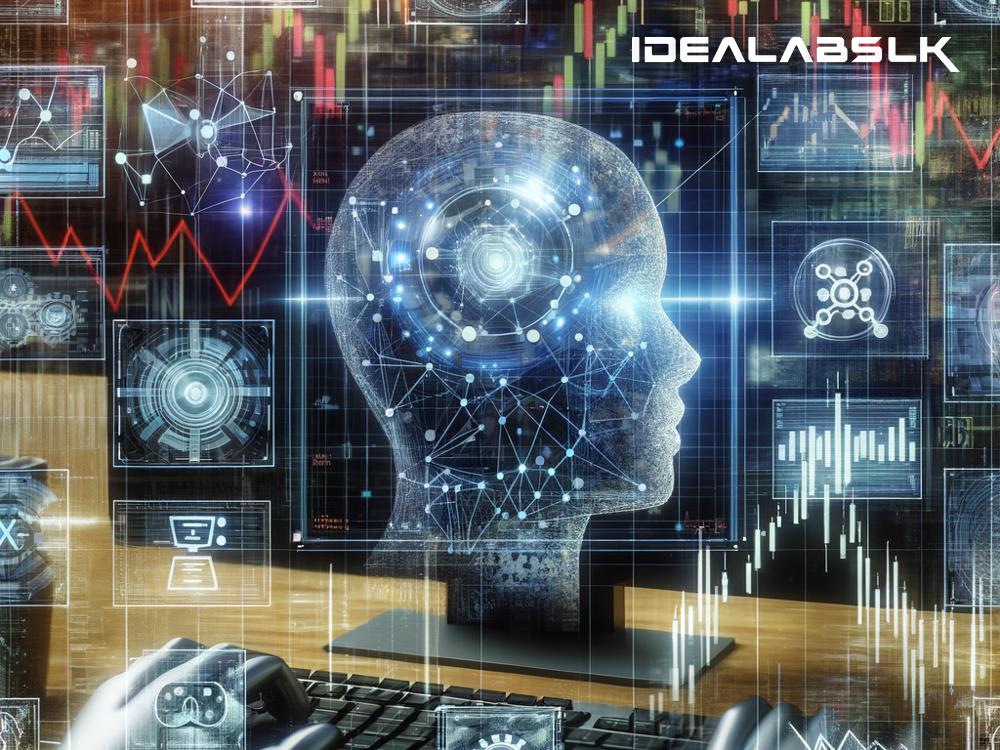AI in Trading: How Algorithms are Shaping Financial Markets
In today's rapidly evolving financial markets, Artificial Intelligence (AI) and algorithms are becoming key players in shaping how trading is done. But what does this really mean for the average person? Well, imagine having a super-smart robot that can make sense of mountains of data in milliseconds and make decisions that could take us days to figure out. That's somewhat what AI in trading is like. Let's break it down into simpler terms to understand how AI and algorithms are transforming the world of trading.
What is AI and How Does it Work in Trading?
AI, or Artificial Intelligence, is a branch of computer science that focuses on creating machines or software that can think and learn like humans. In trading, AI is used to analyze data, predict market trends, and even make trades automatically. It uses algorithms, or sets of rules and instructions, to process vast amounts of information way faster than any human could.
Imagine you're trying to solve a giant puzzle with millions of pieces (the market data), but you're blindfolded (the unpredictable market conditions). AI is like removing the blindfold and giving you the ability to see all the pieces clearly and how they connect in real-time. Algorithms help by suggesting the next piece to place, often accurately predicting which fits best based on previous puzzles it has solved (past market data).
The Role of Algorithms
Algorithms in trading aren't a new concept, but their capabilities have grown exponentially thanks to AI. These algorithms analyze historical data, market conditions, and even news to decide when to buy or sell a particular stock or asset. This process is known as algorithmic or automated trading. It's like having a fleet of drones doing reconnaissance for you, gathering all the intelligence, and making informed decisions on your behalf.
One might wonder, why use algorithms for trading? The answer is efficiency and emotionless decision-making. Humans are prone to error, fatigue, and emotional biases which can lead to irrational decisions. Algorithms, on the other hand, can work around the clock without tiring or second-guessing their strategies due to fear or greed.
The Impact on Financial Markets
The widespread adoption of AI and algorithmic trading is redefining financial markets in several ways:
- Speed: Trades can be executed in fractions of a second, much faster than any human could.
- Accuracy: Algorithms can sift through an enormous amount of information to spot trends and make predictions with a high degree of accuracy.
- Efficiency: Automated systems can monitor multiple markets and securities simultaneously, something exceedingly difficult for individual traders.
- Liquidity: The increased trading volume generated by AI systems adds liquidity to the market, making it easier for transactions to occur without a significant impact on the price of an asset.
However, it's not all sunshine and rainbows. The rise of AI trading also presents challenges, such as the potential for flash crashes where markets plunge rapidly due to high-speed automated trading. Moreover, there's a debate about market fairness, as these advanced tools are mainly in the hands of big institutions, potentially leaving the average trader at a disadvantage.
Looking Ahead: The Future of AI in Trading
As technology continues to evolve, the future of AI in trading looks both promising and complex. One thing is for sure: the integration of AI in financial markets will deepen, leading to more sophisticated and intelligent trading systems. We may see AI becoming more accessible to retail traders, democratizing the process and leveling the playing field.
Additionally, the development of AI is anticipated to lead to more stable financial markets. With the ability to predict and mitigate risks more accurately, AI could help prevent market crashes and enhance economic resilience.
Final Thoughts
The integration of AI and algorithms in trading is transforming the financial markets in ways we've only begun to understand. While it brings efficiency, speed, and accuracy, it also presents new challenges around market stability and fairness. As we move forward, the focus should be on harnessing this technology to benefit the broader economy and all market participants. After all, the ultimate goal of financial markets is to support economic growth and prosperity, and AI, if steered wisely, has a significant role to play in achieving this.

